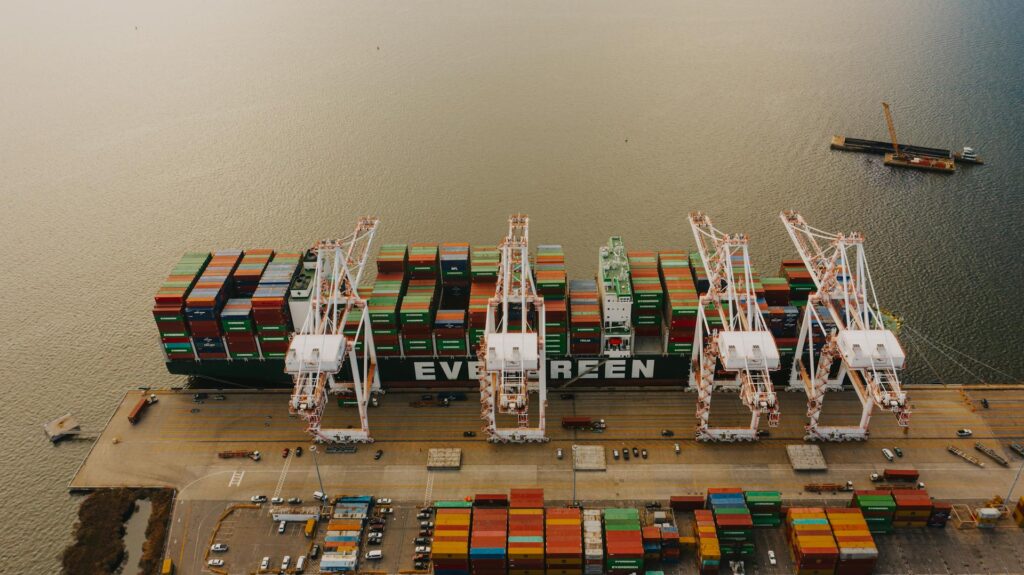
In today’s era of booming globalization and increasingly frequent international trade, international trade is like a vast, intricate, and closely woven network that firmly links various enterprises and diverse, expansive markets around the world. Amidst this labyrinth of cross-border transactions filled with opportunities and challenges, trade terms are just like a precise navigation compass and a guiding beacon, illuminating the path and clarifying the boundaries of rights and responsibilities for both buyers and sellers.
Among them, FOB Incoterms (Free on Board), is undoubtedly the focal point and core, making frequent appearances in all kinds of international trade scenarios. It is truly a “superstar” on the international trade stage, with its high frequency of occurrence having the power to influence the outcomes of numerous transactions.
I. Clear Definition: Comprehending the Core Points
FOB Incoterms clearly stipulates that the seller shoulders the crucial task of carefully loading the goods onto the vessel designated by the buyer at the specified port of shipment. Once this action is completed, it signifies that the seller has successfully fulfilled the obligation of delivery. The moment the goods pass over the ship’s rail, the risk is transferred from the seller to the buyer as smoothly as a baton being passed in a relay race. At the same time, the division of costs is also distinctly defined.
The seller is required to bear all the expenses before the goods are loaded onto the ship, such as inland transportation costs, warehousing fees, and loading charges. These upfront costs fall within the seller’s scope of responsibility, while the buyer has to take on the burden of subsequent freight for the voyage, insurance premiums, and any losses that the goods may incur due to various risks during transportation. For instance, a furniture manufacturer in China signs an FOB Shanghai Port contract with an American importer.
When those exquisitely crafted sets of furniture are successfully hoisted onto the deck of the cargo ship booked by the buyer in Shanghai Port, the seller’s main responsibilities are essentially considered “settled,” and the numerous uncertainties of the long ocean journey thereafter will be dealt with by the American side. In countless similar practical cases of cross-border trade, FOB Incoterms defines the processes for both buyers and sellers time and time again, becoming the key basis for the orderly progress of transactions, and making frequent appearances to coordinate the actions of both parties.
II. Distinct Advantages: Strategies for a Win-Win Situation for Both Buyers and Sellers
For sellers, the most significant advantage lies in the effective “reduction” of risk and the precise control of costs. Just imagine, once the goods are successfully on board the ship, the huge rock of risk that has been weighing on their minds instantly drops. From then on, the seller no longer needs to worry day in and day out about the long and uncertain ocean freight process and the unpredictable risks of the unfamiliar and ever-changing overseas markets.
Moreover, the boundaries of upfront costs are as clear as if they were drawn with a ruler, enabling the seller to calculate costs extremely accurately and, in turn, to set product prices with greater confidence and ease. On the other hand, for buyers, having absolute control over the transportation process is a crucial benefit. They can tailor the most suitable transportation route and carefully select a reliable and satisfactory shipping company according to their own unique needs and the long-established expertise and tacit understanding with their logistics partners. This ensures that the goods will arrive at the destination on time and in good condition.
Additionally, by leveraging their scale advantage of bulk cargo transportation and the deep relationship accumulated through long-term and stable cooperation with shipping enterprises, buyers can often obtain more favorable freight discounts, thereby substantially reducing logistics expenses. In the vast number of international trade cases that take place around the world every day, FOB Incoterms is continuously favored and selected by both buyers and sellers due to its unique advantages, repeatedly witnessing one business win-win situation after another, and its frequency of appearance keeps increasing.
III. Suitable Goods: Making Precise Selections According to Different Characteristics
The FOB model is a perfect match for the transportation of bulk commodities. Commodities such as grains, ores, and crude oil typically have relatively concentrated production areas. For sellers, completing the loading operation at the port of shipment is as convenient and efficient as following a map. The subsequent large-volume, long-distance ocean freight can be entrusted to professional logistics giants, with both parties performing their respective duties and having a clear division of labor.
Standardized industrial products also have a strong affinity for the FOB model. Take automotive parts and electronic components as examples. Their production processes are highly mature, and their packaging is standardized. There is no difficulty in the orderly operation of loading onto the ship at the port of shipment, and buyers and sellers can smoothly complete the handover in accordance with the established rules, with the entire process being smooth and unhindered. However, like everything in the world, there are two sides to the coin. For perishable fresh products, high-value goods that require special security measures, the situation is a bit more complicated.
Since these goods have extremely high requirements for transportation timeliness, precise temperature control throughout the journey, and strict security measures, and the transportation process involves many links with great coordination difficulties, in the FOB model, there is a possibility of slight “gaps” in the transfer of rights and responsibilities.Therefore, when choosing to use this model, one must be extremely cautious. Even with such special situations, in the international trade of the vast majority of conventional goods, FOB Incoterms still frequently appears on the scene with its wide adaptability, ensuring the orderly progress of transactions.
IV. Practical Tips: A Guide to Avoiding Pitfalls
In the crucial stage of contract formulation, details undoubtedly determine success or failure. Both parties must define the exact name of the port of shipment, the reasonable range of the delivery date, and the fine details of the loading and unloading time with the utmost rigor, just like carving a work of art. Even the slightest ambiguous expression can be like a time bomb, potentially triggering endless disputes in the future. At the same time, aspects such as the goods packaging standards and shipping mark identification should also be clearly specified in detail. Only in this way can the accurate identification of the goods throughout the transportation process be guaranteed.
When it comes to the critical step of choosing a freight forwarder, the seller must not be negligent. It is necessary to give priority to considering the reputation and professional capabilities of the freight forwarding company. A little carelessness may lead to being caught in a situation where the freight forwarder colludes with the buyer, which will seriously damage the seller’s own interests. On the other hand, the buyer should intervene deeply in advance and communicate closely and cooperate with the freight forwarder to ensure that the entire transportation process is transparent and controllable. Regarding the insurance planning aspect, the buyer must strengthen the awareness of risk.
According to the characteristics of the goods and the risk situation of the voyage, a sufficient amount of marine insurance and additional insurance should be purchased to provide a guarantee for the safe arrival of the goods. Although the seller’s risk has been transferred, it is also a wise move and a measure of foresight to retain key evidence before loading the ship and to purchase inland transportation insurance reasonably. In every step of international trade practice, FOB Incoterms, like an indefatigable guardian, is repeatedly mentioned and applied, all for the purpose of ensuring the successful conclusion of transactions.
FOB Incoterms, as a fundamental rule in international trade, builds a solid framework for countless transactions. When both buyers and sellers deeply understand and flexibly apply it, they can not only meet their respective needs and achieve maximum benefits but also move forward steadily in the ever-changing international business sea, allowing the ship of cross-border trade to ride the waves and sail towards the other side of a win-win situation. In the future of deep integration of global economic and trade, its importance will undoubtedly become more prominent, continuously writing wonderful chapters in international trade, frequently appearing in every trade corner where it is needed, and becoming one of the never-fading protagonists in international trade.





